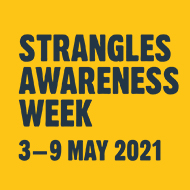
Profession urged to speak out as part of Strangles Awareness Week 2021.
Equine organisations are calling on vets to share their experiences of strangles in a bid to help those struggling financially and emotionally with the disease.
The call comes as part of Strangle Awareness Week 2021 (3-9 May), a national week of action encouraging horse owners, yard managers, equine professionals and vets to speak out about the condition and promote support for people who may be suffering in silence.
A recent online survey of yard managers identified fear as one of the main barriers to talking about the disease. Seventy-five per cent of respondents said speaking out about strangles could ultimately affect the reputation of their business.
Sadly, this fear of speaking out only allows strangles - the most prevalent equine disease in the UK - to spread. Organisers behind Strangles Awareness Week hope that by encouraging others to talk about their experiences, more people will gain the confidence to seek help and advice.
Strangles Awareness Week is a joint effort between the British Horse Society, Intervacc, Keeping Britain’s Horses Healthy, Redwings Horse Sanctuary, Scotland’s Rural College’s Premium Assured Strangles Scheme (PASS), Surveillance of Equine Strangles (SES), The (Dick) Royal School of Veterinary Studies and World Horse Welfare.
Through social media, last year's event reached a half-a-million people, garnering support from vet practices across the UK, who engaged with and shared posts with their clients. This year, organisers hope even more people will get involved.
Dave Rendle, BEVA junior vice president and chair of the BEVA health and medicines committee, said: “Strangles should be easy to control. With a little more understanding of the disease, we could make massive strides to protect our horses and prevent the disease spreading. Every horse owner should spare an hour or two to tune into Strangles Awareness Week.”
Besides practical information, this year's event will include an informative series of podcasts featuring figures from across the equestrian community. The figures will share their experiences of strangles and encourage others to talk about its prevention and management.
Vet practices wishing to get involved can apply for free resources, including an editable presentation to host to clients during the week, either online or in-person depending on COVID-19 restrictions.
Andie McPherson, Redwings’ campaigns manager, said: “When people hear of a Strangles outbreak in their area, we want the first reaction to be one of support, not judgement. Strangles can happen to any horse yet sadly there is still so much stigma attached to it which stops people speaking out and allows the disease to continue to spread.
“As a trusted source of advice and information for horse owners, the Week aims to equip vets with additional tools to help them give the vital support their clients need and maximise their influence to prompt more conversations about Strangles.”
More information about this year's event will be available soon. To find out ways your veterinary practice can get involved, email campaigns@redwings.co.uk



 The Federation of Independent Veterinary Practices (FIVP) has announced a third season of its podcast, Practice Matters.
The Federation of Independent Veterinary Practices (FIVP) has announced a third season of its podcast, Practice Matters.